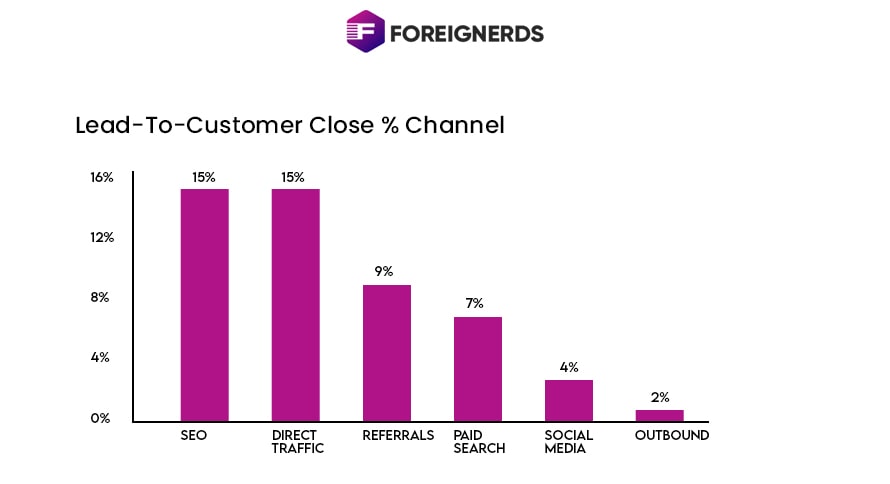Search Engine Optimization is the process of optimizing a website to rank higher on search engine results pages (SERPs). A variety of techniques arve used to achieve this goal, and some of them are more effective than others. However, there are a few common 11 deadly sins of Search Engine Optimization that can actually hurt your chances of ranking well in SERPs.

The 11 deadly sins of Search Engine Optimization
Here are the
11 deadly sins of Search Engine Optimization that you should avoid at all costs.
-
Not Optimizing for the Right Keywords
One of the most common on the list of
11 deadly sins SEO people make when optimizing their website for search engines is not targeting the right keywords. It’s important to choose keywords that are relevant to your business and have a decent amount of monthly searches. But you also need to make sure that you’re not choosing keywords that are too competitive. If you’re just starting out, it might be better to target long-tail keywords instead of short-tail keywords.
-
Not Creating Enough Content
Another mistake people make is not creating enough content. A website that only has a few pages is not going to rank as well as a website with dozens or even hundreds of pages. That’s because search engines like Google prefer websites that have a lot of content. They see these websites as being more authoritative and useful to users. So, if you want your website to rank well, make sure you add new pages on a regular basis.
-
Not Promoting Your Content
Just creating content isn’t enough as it contributes to the list of
11 deadly sins of SEO. You also need to promote it if you want people to find it. There are a number of ways to promote your content, such as social media, email marketing, and paid advertising. The more eyeballs you can get on your content, the better chance you have of ranking well in SERPs.

-
Not Optimizing Your Title Tags
One of the most important places to optimize is your title tags. These are the words that appear in the search results when someone searches for a particular keyword. So, if you want your website to rank for “SEO tips,” then make sure your title tag includes those keywords. Ideally, you should put your target keyword at the beginning of the title tag.
-
Not Optimizing Your Meta Descriptions
Meta descriptions are the short descriptions that appear under your title tag in the search results. These are also important for SEO, so make sure you include your target keyword in your meta description. Keep it under 155 characters so it doesn’t get cut off in the search results.
-
Not Optimizing Your Images
Another important factor that contributes to the
11 deadly sins of SEO are not optimizing your images. Whenever you upload an image to your website, make sure you include keywords in the file name and fill out the alternate text field with a brief description of the image. This will help search engines index your images and improve your chances of ranking well for relevant keywords.

-
Not Optimizing Your Headings
In addition to optimizing your title tags and meta descriptions, you should also optimize your headings. Your headings are the largest text on your page, so they’re one of the first things people will see. Make sure your target keyword is included in at least one of your headings.
-
Not Optimizing for Local Search
If you have a brick-and-mortar business, then you need to make sure you’re optimizing for local search. This means including your city and state in your title tags, meta descriptions, and headings. You should also create a Google My Business listing and make sure all of your information is up-to-date.
-
Not Building Links
Links are still one of the most important ranking factors for SEO. That’s why you need to make sure you’re building links to your website. There are a number of ways to do this, such as guest blogging, directory listings, and social media posts. The more high-quality links you have pointing to your website, the better chance you have of ranking well in SERPs.
-
Not Using Social Media
Social media can be a great way to promote your content and improve your SEO. Make sure you create profiles on major social networks (Facebook, Twitter, Instagram, etc.) and share your content on a regular basis. You should also interact with other users and try to build up a following.
-
Not Tracking Your Progress
The final mistake people make is not tracking their progress. If you want to see how well your SEO efforts are paying off, then you need to track your progress. Google Analytics is a free tool that can help you track your website’s traffic and see where your visitors are coming from. This information can be invaluable in improving your SEO strategy.
If you’re making any of these
11 deadly sins of Search Engine Optimization, then it’s time to make some changes. By following the tips above, you can improve your SEO and start seeing better results.